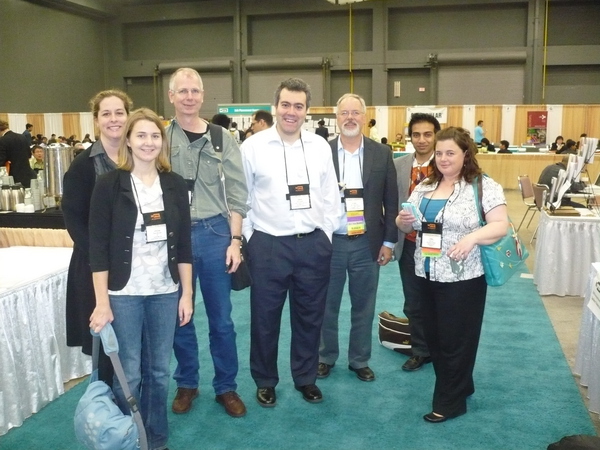I am getting ready for the INFORMS Conference coming up next week in Charlotte. As I generally do, I will be guest blogging at the conference (along with more than a dozen others: great lineup this year!), so my blog entries will appear there (often with a copy showing up here). I have put together my first entry, entitled “Hoisted on Operations Research’s Petard” (a petard is a small bomb; if a military engineer had his bomb explode prematurely, he would be hoisted into the air):
For ’tis the sport to have the enginer
Hoist with his own petard, an’t shall go hardHamlet, Act 3, Scene 4
I am greatly looking foward to this year’s INFORMS Annual Conference in Charlotte. There is nothing like getting together with 4000 of my closest friends, raising many a coffee (and other liquids) in toasting the successes of our field.
I could see the successes of operations research over the last couple of days as I tried to change my flights and hotel in reaction to some family issues. I had booked everything months ago, paying a pittance for the flight and getting the conference rate for the hotel. Of course, trying to rebook things three days in advance was a different story: $150 change fees, along with quadrupling of airfare was the opening bid, with the opportunity to pay about six times the airfare if I wanted to fly at a time when humans are normally awake. And I’m not sure why this happened, but the hotel took the chance to increase my daily rate by $10, even though I just knocked a day off my reservation. The conference suddenly became a lot more expensive, just because my wife pointed out that if I don’t rake the leaves on Saturday, when will it ever get done!
I know who to blame for all this: operations research, of course. The subfield of “Revenue Management” makes change fees and differential pricing a science. And that field is one of the great success stories of operations research, as shown by such things as the string of Edelman finalists that focus on revenue management. So, while I rue the extra expense that operations research has caused me, I can take solace in knowing that I will eventually gain far more due to the overall success of our field.
See you in Charlotte!


